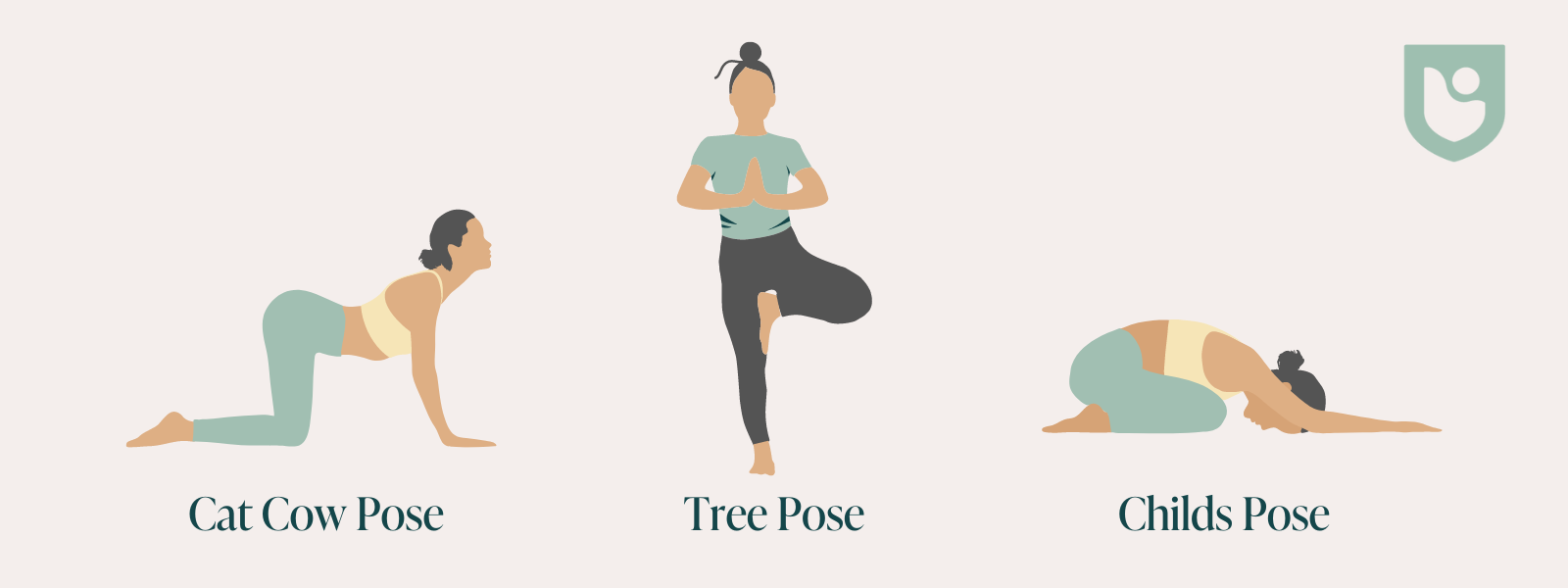From Active-Duty Medical Officer To Gastroenterologist: A Conversation With Dr. Paredes
We caught up with Dr. Paredes to learn more about his work as a gastroenterologist, the biggest misconceptions around Crohn’s disease, and his hopes...

Yoga can help improve flexibility, balance, and muscular endurance in those with MS — and help relieve stress and anxiety.
Multiple sclerosis (MS) is a chronic autoimmune disease that affects the central nervous system, leading to nerve damage, disability, and a range of physical and mental symptoms.
MS can cause muscle weakness, spasticity, balance problems, fatigue, pain, and cognitive impairment, among other challenges. While there is no cure for MS, various treatments, therapies, and lifestyle approaches can help manage symptoms and improve quality of life. One such modality that has gained increasing attention is yoga.
Yoga is a mind-body practice that consists of body postures, breathing techniques, meditation, and relaxation exercises. Research conducted by BMC Neurology shows that these practices help improve flexibility, balance, and muscular endurance in those with MS and help relieve stress and anxiety. Yoga has numerous advantages, and individuals of all ages and strengths can practice it.
Benefits of yoga for MS patients
Although there is no cure for MS, there are several ways to deal with its side effects and enhance one's life quality, including yoga therapy. Some potential benefits of yoga for individuals with MS include:
What type of yoga is best for MS?
When practicing yoga for MS, it's essential to choose safe, effective, and appropriate poses for your level of ability. Listed below are some yoga styles which could benefit people with MS:
5 best yoga poses for MS patients

Additional resources
There are excellent YouTube videos for those with MS to begin practicing yoga:
Yoga for Multiple Sclerosis with Sherry Zak Morris
Sherry Zak Morris, who has been teaching yoga to individuals with MS for over 20 years, is featured in this series of videos by Yoga Vista Academy containing a variety of yoga sequences and alterations tailored to those living with MS.
Gentle Yoga for Multiple Sclerosis by Yoga with Adriene
This yogic breathing practice is appropriate for people of all levels, including beginners. It is intended to alleviate fatigue and balance problems that individuals with MS frequently experience.
Chair Yoga for Multiple Sclerosis by Yoga for the Peaceful features
A chair yoga sequence is included to help people with MS improve their stability, physical power, and adaptability.
Yoga for MS with Dr. Elliot Frohman
Dr. Elliot Frohman, a neurologist and yoga practitioner, is featured in this National MS Society video. He leads a gentle yoga sequence tailored to people with MS.
Yoga for MS and Neuromuscular Conditions
Yoga Journal presents a sequence led by yoga therapist Jivana Heyman in this video. The series consists of graceful movement patterns and breathing exercises to help folks with MS and other neuromuscular conditions.
Additional lifestyle recommendations & tips for MS
Although there is no cure for MS, yoga can help ease the symptoms and improve the quality of life. When practicing yoga for MS, starting slow and listening to your body is essential. If you have any pain or dizziness, stop and rest. As with any new exercise routine, check with your doctor before starting. Yoga can be a great way to reduce stress, increase flexibility and strength, and improve balance.
We caught up with Dr. Paredes to learn more about his work as a gastroenterologist, the biggest misconceptions around Crohn’s disease, and his hopes...
Learn more about Pemgarda, a groundbreaking preventative treatment offering the immunocompromised a new layer of defense against Covid-19.
Insurance, claims, prior authorization, precertification, deductibles….the list of healthcare terms goes on and on (and on). Needless to say, it’s...